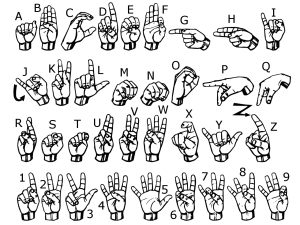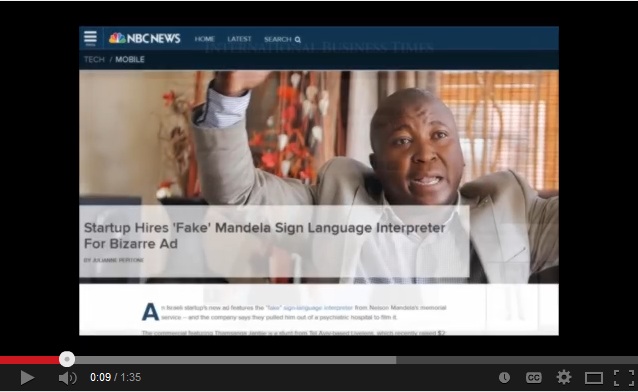 Upon first encountering people communicating in sign language, many hearing people may exclaim enthusiastically, “Oh, ASL is such a beautiful language!” Basically, asking “Can I join?” Interpreters may roll their eyes – after all, speaking in ASL is our profession.
Upon first encountering people communicating in sign language, many hearing people may exclaim enthusiastically, “Oh, ASL is such a beautiful language!” Basically, asking “Can I join?” Interpreters may roll their eyes – after all, speaking in ASL is our profession.
But welcoming potential signers will go a long way in opening up communication between Deaf people and the rest of the hearing population. This is a good thing.
- Interpreters don’t have a monopoly on communication. We aren’t going to lose our jobs if teachers, lawyers, nurses, mechanics, and baristas decide to take an ASL class. Not everyone wants to be an interpreter even if they do want to become youTube stars by interpreting Bruno Mars songs.
- Hearing signers open up communication. We’ve all seen Rebecca King order her frappuccino from Katie Wyble via the Evolution Screen at the St. Augustine, FL Starbucks. What made that interaction possible, along with technology, was hearing signers, not interpreters. Ms. Wyble is one of a handful of signers at that Starbucks. Ms. Wyble was smitten the first time she saw ASL, so she studied it for 4 years. Her studies helped her do her job well and made Ms. King’s day. St. Augustine has a huge signing community as the Florida School for the Deaf and Blind is located there. The large signing community makes it easy for Starbucks to hire signing baristas.
- Native ASL users live among us. ASL differs from other foreign languages in that many non-English speakers may understand sufficient English with which to communicate and may improve their English skills with time. (I took 2 years of high school Russian and have never said more than da or niet to any native user.) But often ASL is the only language accessible to native users. Therefore, ASL students may have the opportunity to interact with Deaf people in their own neighborhood.
- ASL feels accessible to hearing Americans. Unlike other foreign languages, ASL doesn’t threaten English speaking Americans, either because we code it in English or because it’s a manual language. Whatever the case, Americans are willing to take ASL and practice it almost immediately, by approaching complete strangers and awkwardly signing, “H-I. My name is A-M-B-E-R.”
- Signing students have exposure to Deaf culture. Hearing people who become ASL signers will naturally learn much about Deaf culture and to appreciate the Deaf accent. As more people include Deaf people among their community of friends and acquaintances, there will be more acceptance and fewer acts of discrimination, like this one.
So, the next time an eager, potential signer tells you ASL is beautiful, invite them in. A warm response–It is a beautiful language! Learn it!–will go a long way in creating an abundance of recreational signers.









